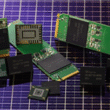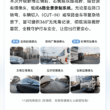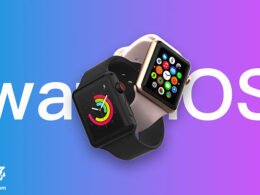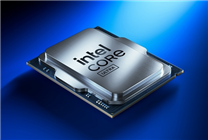### Summary:
– Apple unveiled four new iPhones, namely iPhone 17, iPhone 17 Pro, iPhone 17 Pro Max, and iPhone Air, on September 10, 2023.
– The iPhone Air launch is postponed due to supply chain challenges and operator coordination issues, now set to support multiple eSIMs.
– The iPhone Air, touted as the thinnest iPhone ever, features a 6.5-inch display and A19 Pro processor, starting at 7,999 yuan.
—
On September 10, 2023, Apple introduced its latest lineup of smartphones, which includes the highly anticipated iPhone 17, iPhone 17 Pro, iPhone 17 Pro Max, and the groundbreaking iPhone Air. The first three models became available for pre-order on September 12, with an official release date set for September 19. However, the iPhone Air will not launch as scheduled, which has garnered significant attention and speculation in the tech community.
Apple has announced that the iPhone Air features a remarkably thin and lightweight design along with enhanced durability compared to previous models. Equipped with professional-grade performance capabilities, its innovative Center Stage front camera and a 48-megapixel fusion camera system promise an exceptional user experience, complemented by all-day battery life. Despite the excitement surrounding its features, users will have to wait longer to experience the iPhone Air as Apple works closely with regulatory bodies to facilitate its release in China.
Industry analyst Dingjutsu Digital has suggested that the postponement stems from Apple’s internal miscalculations. Reports indicate that the supply of iPhone Air units was inadequate, aimed to support a simultaneous launch alongside the other models, but fell short. This limited stock has raised concerns regarding Apple’s inventory management and overall launch strategy.
Additionally, there are indications that the deliberate delay is influenced by telecom operators in China. Initially, the iPhone Air was set to be compatible only with China Unicom’s eSIM. However, in efforts to broaden compatibility, all three major Chinese carriers—China Mobile, China Telecom, and China Unicom—are collaborating to offer eSIM support, which has contributed to the decision to delay its launch. Apple is actively seeking solutions to ensure that regulatory approvals are obtained smoothly and in a timely manner.
The updated specifications of the iPhone Air show that it utilizes eSIM technology exclusively, foregoing the need for traditional physical SIM cards. Users must choose mobile operators that support eSIM services along with suitable service plans. The specific timeline for availability will depend on regulatory approvals and coordination among carriers, emphasizing the importance of confirming eSIM compatibility directly with the respective operators.
Recognized as Apple’s thinnest smartphone to date, the iPhone Air measures just 5.6mm thick, featuring a vibrant 6.5-inch display. The device is powered by the A19 Pro processor, which Apple CEO Tim Cook has described as a “disruptive innovation” within the smartphone industry. With a starting price set at 7,999 yuan, the iPhone Air aims to attract a segment of consumers looking for ultrathin designs without compromising on performance or battery life.
The wait for the iPhone Air not only highlights Apple’s ambitious design and performance goals but also presents challenges tied to supply chain constraints and market conditions. As excitement builds among consumers eager for the new innovations promised by Apple, the tech giant must navigate these hurdles to successfully launch what could be a game-changing device in their lineup.
In conclusion, while the initial reception for the iPhone 17 series appears positive, the postponement of the iPhone Air underscores the complexities involved in launching advanced technology in a highly competitive and regulated market. Stakeholders will be watching closely as Apple strives to resolve these issues, hoping to deliver the iPhone Air to consumers sooner rather than later.








